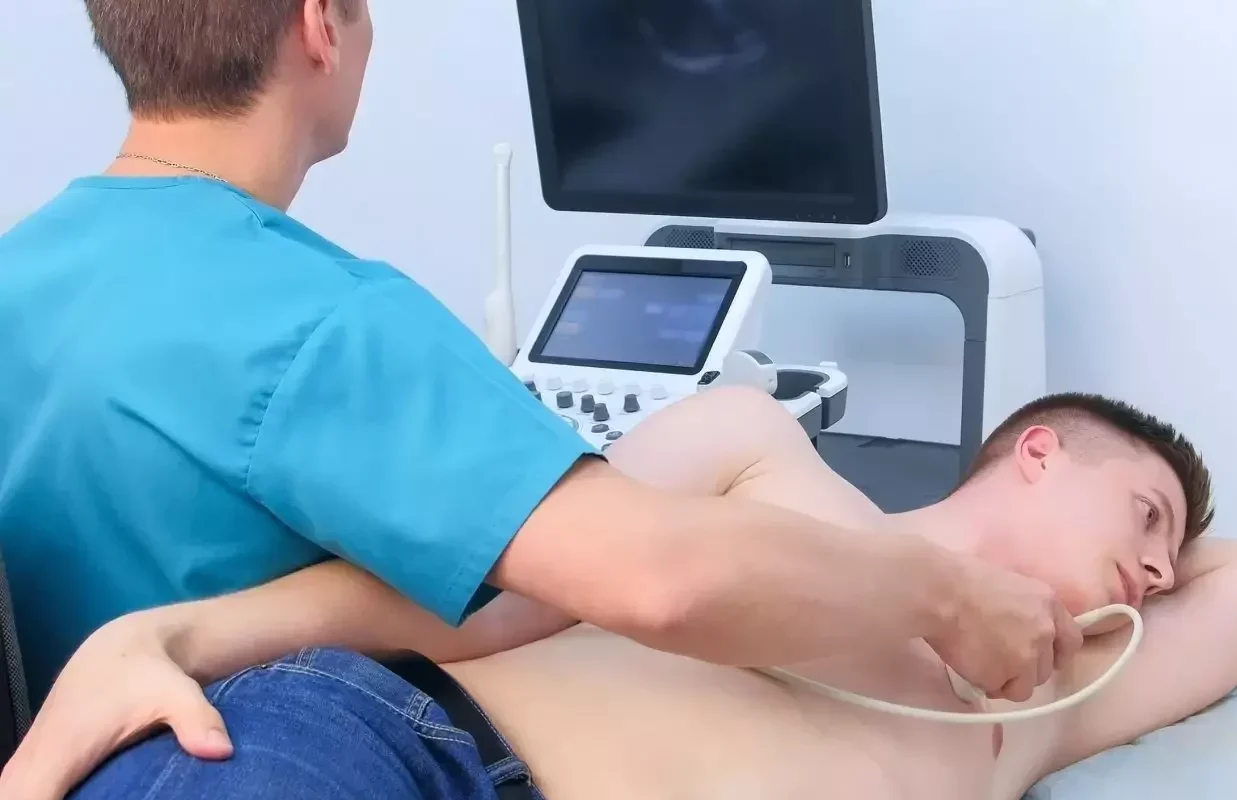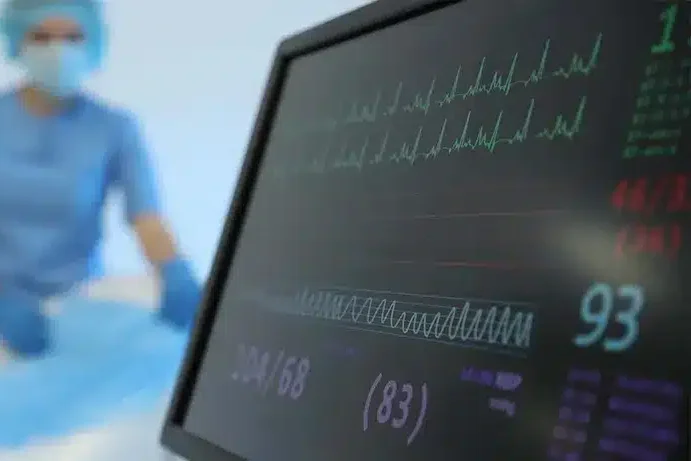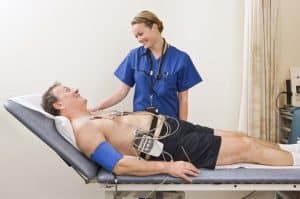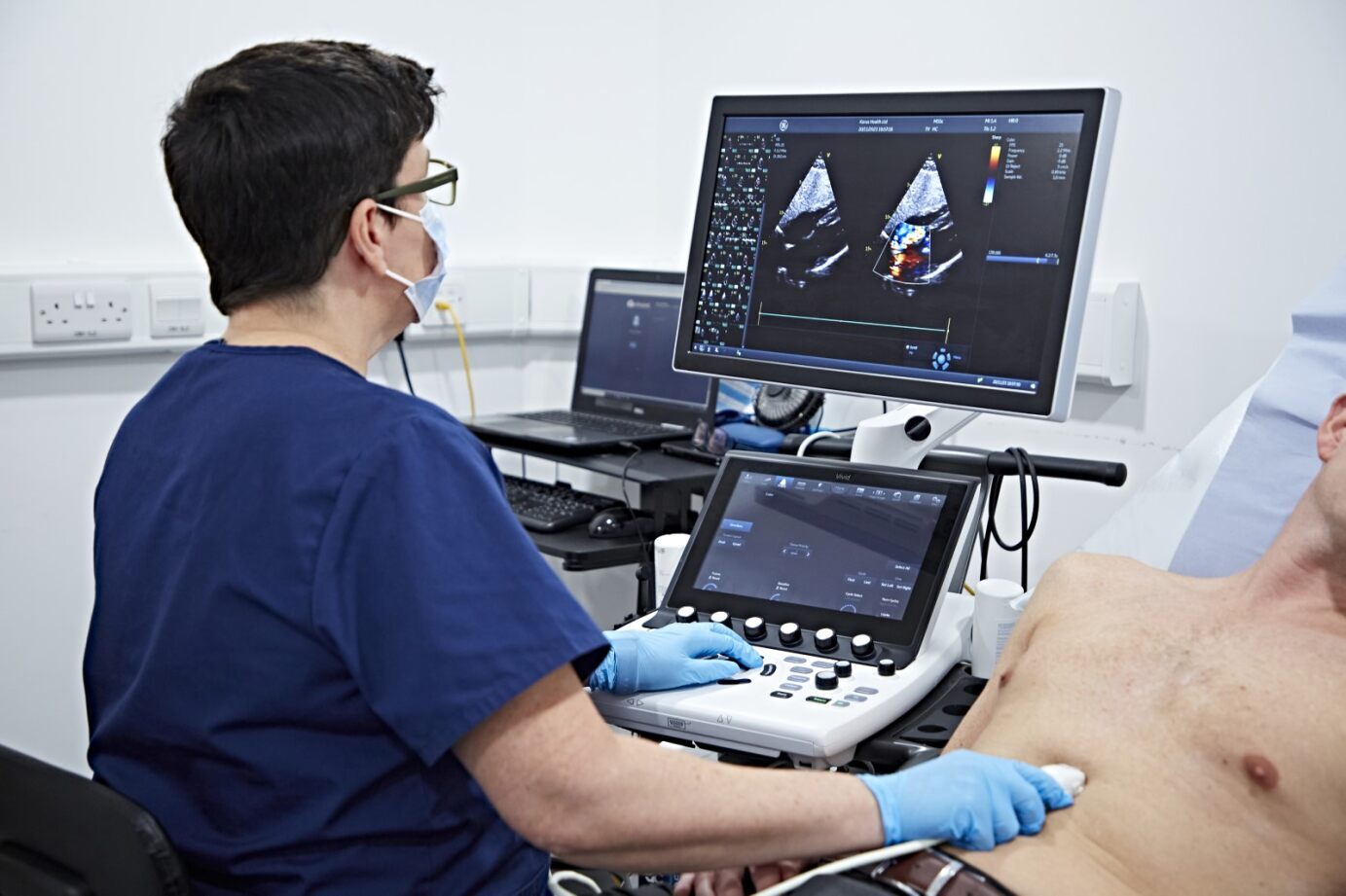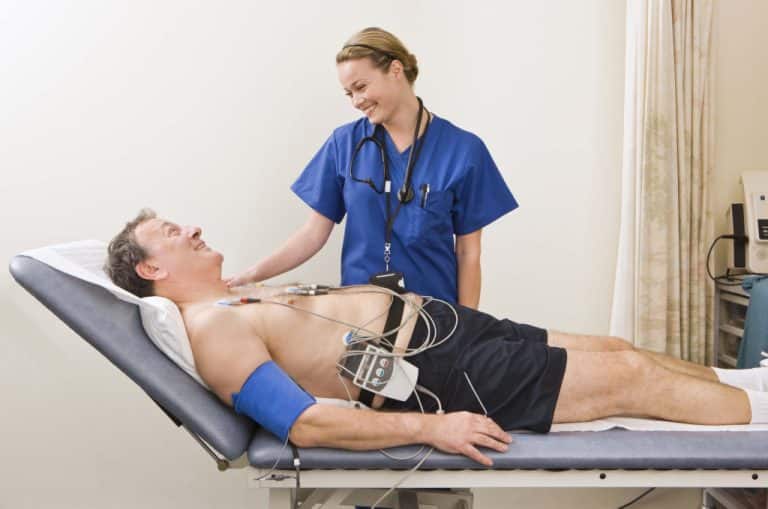
Electrocardiography, often abbreviated as ECG or EKG, is a non-invasive medical test that records the electrical activity of the heart over a period of time. It is a fundamental tool in cardiology used to evaluate the heart’s electrical conduction system and diagnose various cardiac abnormalities.
During an electrocardiogram, electrodes (small, adhesive patches) are placed on specific locations on the skin of the chest, arms, and legs. These electrodes detect the electrical impulses generated by the heart as it beats and transmit them to the ECG machine, which records the information as a series of waveforms on graph paper or a computer screen.
The primary components of an ECG waveform include the P wave, QRS complex, and T wave, each representing different phases of the cardiac cycle:
- The P wave represents atrial depolarization, or the contraction of the atria.
- The QRS complex represents ventricular depolarization, or the contraction of the ventricles.
- The T wave represents ventricular repolarization, or the recovery of the ventricles following contraction.
By analyzing the characteristics of these waveforms, healthcare providers can assess:
- Heart Rate: The intervals between successive R waves indicate the heart rate (beats per minute).
- Rhythm: Regularity or irregularity of the heart rhythm, which may indicate arrhythmias such as atrial fibrillation, ventricular tachycardia, or bradycardia.
- Conduction Abnormalities: Presence of conduction delays or blocks in the heart’s electrical system, such as atrioventricular block or bundle branch block.
- Cardiac Ischemia: Signs of insufficient blood flow to the heart muscle, which may suggest coronary artery disease or myocardial infarction (heart attack).
- Cardiac Hypertrophy: Enlargement or thickening of the heart chambers, which may result from conditions like hypertension or cardiomyopathy.
Read Our Latest Google Reviews
EXCELLENTTrustindex verifies that the original source of the review is Google. Very pleased with my appointment for a knee scan which was done very precisely and slowly and gave a true picture of the whole knee area and back of knee. Was sent the results which was good for me to see for future medication regarding growing arthritis. All staff very helpful with any information you needed. This was the St.Albans branch. Very GoodPosted onTrustindex verifies that the original source of the review is Google. Last minute appointment easily booked the day before. Such a charming doctor and assistant. Very thorough and reassuring and thankfully negative results.Posted onTrustindex verifies that the original source of the review is Google. I needed an immediate scan to put my mind at rest on a significant medical matter. London Private Ultrasound operating from St Albans provided an exemplary customer service. Dr Vakilian was friendly, professional and knowledgeable, ably supported by a charming assistant and receptionist. As well as discussing the scan findings with me during my visit I received a detailed report on the scan with conclusions and recommendations within 24 hours. I strongly recommend London Private Ultrasound to everyone who requires a fast, efficient and courteous medical service.Posted onTrustindex verifies that the original source of the review is Google. Affordable and great service.Posted onTrustindex verifies that the original source of the review is Google. I have previously attended private ultrasound clinics—one was very good, but I also had a negative experience at another clinic in the city, despite paying more. Because of that, I decided to try this location on Welbeck Street after seeing it online, and I had a good feeling from the start. I was fortunate to have Mr. Reza Farahmandfar as my specialist🙏. He performed my breast scan and ultrasound and made me feel completely at ease throughout the appointment. Nothing was too much trouble, and the scan was not painful at all. Everything was calm, smooth, and professional, and his gentle approach was truly reassuring. Thank you for taking such good care of me and for also delivering the wonderful news that everything is healthy. God bless you and your lovely family.🙏🙏🙏🌷🌷🌷🌺🌺🌺Posted onTrustindex verifies that the original source of the review is Google. Excellent service - friendly and professional, - kept informed throughout and was able to discuss and get helpful answers during procedure. Full results and imaging report sent by next morning following a 5pm scan!! Cannot recommend highly enough. Thank you so much.Posted onTrustindex verifies that the original source of the review is Google. Very professional service with friendly staff would definately recommend.Posted onTrustindex verifies that the original source of the review is Google. Very happy with the service I received here. Mr Farahmandfar was very thorough as well as being friendly and professional. I am really pleased I came and will be back to have regular check ups.Posted onTrustindex verifies that the original source of the review is Google. Excellent service, professional and very quick to get an appointment. Highly recommendPosted onTrustindex verifies that the original source of the review is Google. Easy booking process, with plenty of available appointments. I was seen on time by a very kind and professional doctor who gave me my results immediatly because he knew I was concerned. PDF of the scan images was in my inbox before I'd even left the building!
Heart Health Check Packages
Price: £420
Package Includes:
Price: £685
Comprehensive heart screening. Expert insight. Peace of mind.
Package Includes:
Price: £995
Comprehensive cardiovascular evaluation by experts.
Package Includes:
Price: £1220
Consultant Cardiologist + GP + ECG + ECHO + Blood Tests + Carotid Artery Scan
Package Includes:


